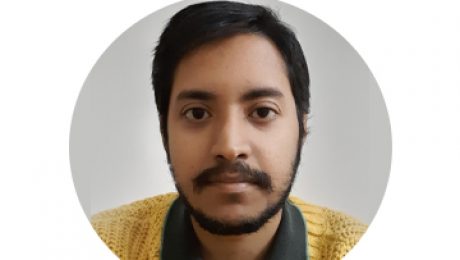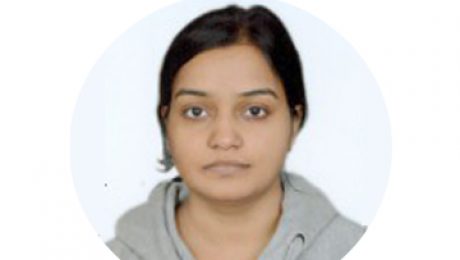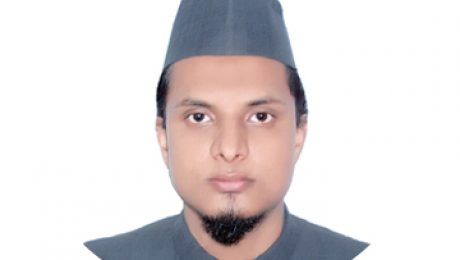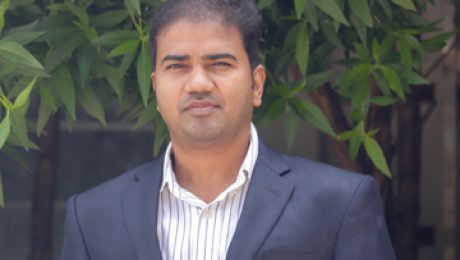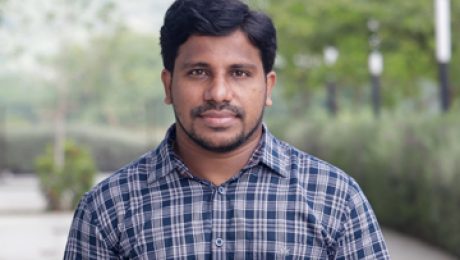“Overcoming Procrastination!-Doing Vs Delay”- in conversation with Dr Smita Sharma
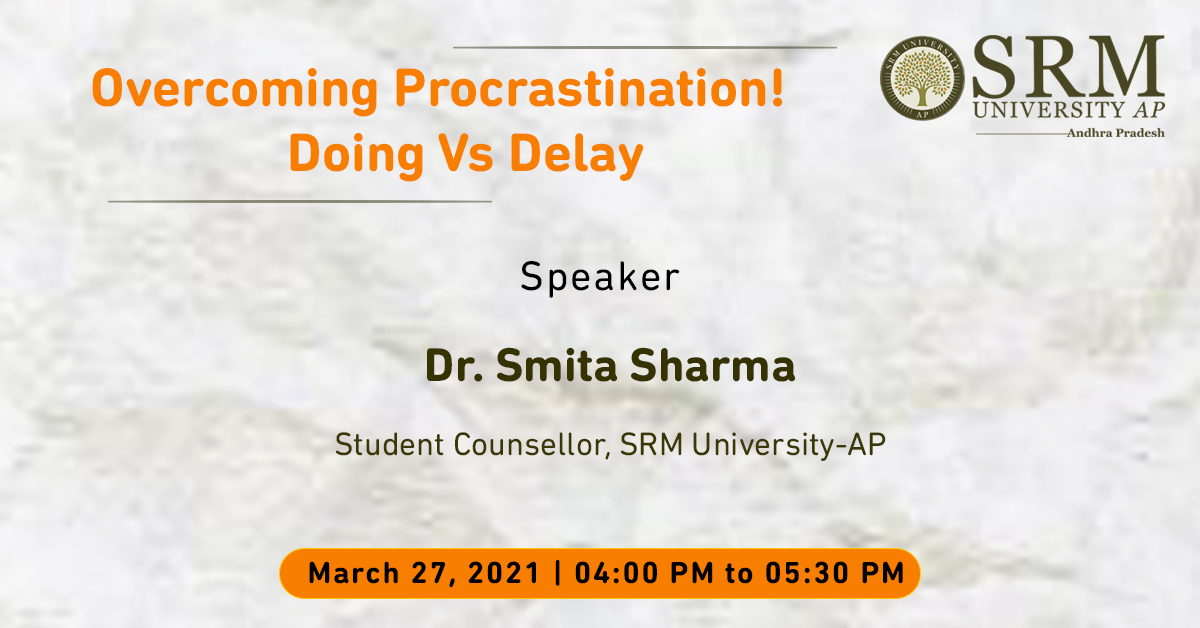 How many of you thought, “It’s just the beginning of the semester, there’s a lot of time to catch up with studies,” and then struggled with the syllabus before the exams? How many of you were frustrated with assignment submissions just because you did not start it on time? How many sleepless nights have you spent before taking the exams because the revision was due? We are sure that you all have experienced some kind of trouble because you put the work on hold. Admittedly, we all have a procrastinator within ourselves. We all love to postpone things a bit, allowing us some free time to enjoy ourselves. However, we often forget that all the work that is being piled up due to our procrastination will come back to us with a bitter consequence.
How many of you thought, “It’s just the beginning of the semester, there’s a lot of time to catch up with studies,” and then struggled with the syllabus before the exams? How many of you were frustrated with assignment submissions just because you did not start it on time? How many sleepless nights have you spent before taking the exams because the revision was due? We are sure that you all have experienced some kind of trouble because you put the work on hold. Admittedly, we all have a procrastinator within ourselves. We all love to postpone things a bit, allowing us some free time to enjoy ourselves. However, we often forget that all the work that is being piled up due to our procrastination will come back to us with a bitter consequence.
A student’s life is a time to learn the essential skills that are going to support them in their future professional and personal growth. Doing tasks on time has its own substantial benefits that are not only going to help you in your academic career but also in every sphere of life. Do you find it to be too difficult to learn?
Dr Smita Sharma is the ideal person who can enlighten you on how procrastination affects our thinking and behaviour. She will further guide you with the techniques to defeat it. Dr Smita, as you know, is your counsellor at SRM University-AP, and she will be available in an Interactive session with you on “Overcoming Procrastination!-Doing Vs Delay”. Join the session on March 27, 2021, at 4 pm.
- Published in Departmental Events, Events, Students Affairs Events, Webinars
Dr J P Raja Pandiyan
- Published in Chemistry Faculty, Faculty, SEAS
Prof C Durga Rao receives a grant to enhance vaccine efficacy at a reduced cost
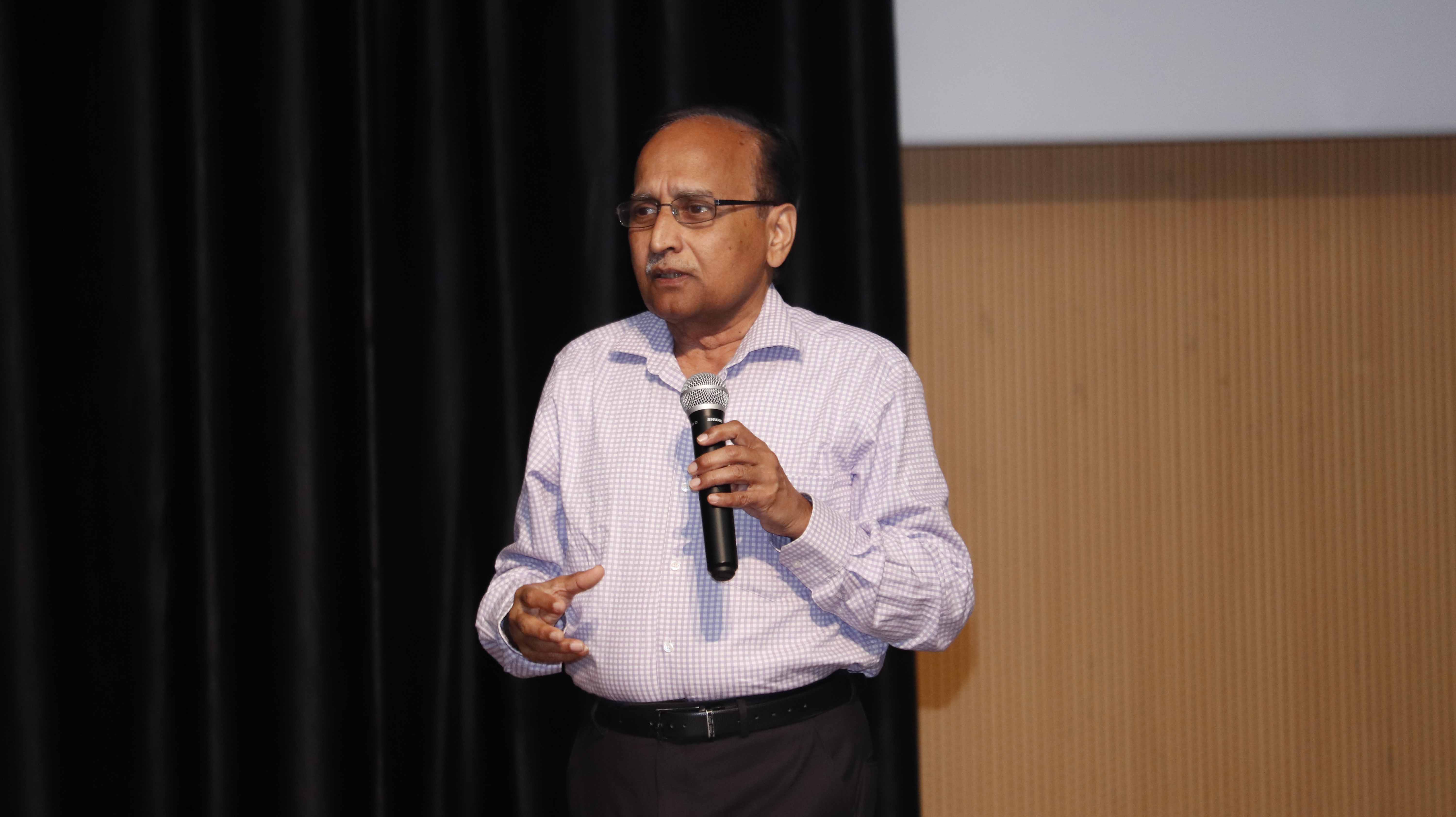 Prof C Durga Rao (Principal Investigator), Professor, Department of Biological Sciences, and Associate Dean, Sciences, Department of Biological Sciences, SRM University-AP, Andhra Pradesh has received a total outlay of Rs. 1,10,52,941/- from the Department of Biotechnology, Government of India, to work on the project titled “Understanding the molecular basis for the extreme differential level of expression of genes from human and animal rotaviruses in gene-transfected cells: Implications for improving the growth of human vaccine strains”. Using the grant, the professor will be spawning the appropriate facilities to perform cell culture and virus-related research at SRM University-AP.
Prof C Durga Rao (Principal Investigator), Professor, Department of Biological Sciences, and Associate Dean, Sciences, Department of Biological Sciences, SRM University-AP, Andhra Pradesh has received a total outlay of Rs. 1,10,52,941/- from the Department of Biotechnology, Government of India, to work on the project titled “Understanding the molecular basis for the extreme differential level of expression of genes from human and animal rotaviruses in gene-transfected cells: Implications for improving the growth of human vaccine strains”. Using the grant, the professor will be spawning the appropriate facilities to perform cell culture and virus-related research at SRM University-AP.
Understanding how a virus overpowers the host resistance mechanisms and seizes the host cellular processes for its own growth is very challenging and is essential for the development of not only efficient viral vaccines but also for antiviral therapeutic strategies. Prof Durga Rao informs, “Rotavirus is the leading cause of severe and acute dehydrating diarrhoea in infants and children below 5 years of age. Efforts by us and Dr Bhan, former Secretary, Department of Biotechnology, Government of India, led to the discovery and development of the first made in India rotavirus vaccine, produced by Bharat Biotech, Hyderabad.”
In the earlier project, the professor Rao observed that while some human rotaviral proteins could be expressed at high levels when the cloned genes were introduced into mammalian cells, other proteins could not be expressed at detectable levels. However, the virus expresses copious amounts of all its proteins when it infects the cells. Prof Durga Rao further shares, “Within a few hours of infection, each virus employs several ploys in the infected cell to subvert the cellular defence and regulatory mechanisms and captures the host for its own progeny production.”
Based on the earlier observations, this project will advance to unravel the tricks employed by the virus, and viral transactions in the infected cells. The outcome of the project will have implications for genetically engineering the poorly growing human vaccine strains for their efficient growth in cell culture, leading to reduced cost of not only rotavirus vaccines, but also other viral vaccines.
- Published in News, Research News
Newsmakers: G Ram Dheeraj to recount the tale of his expedition to “Deo Tibba Peak (6001mts)”
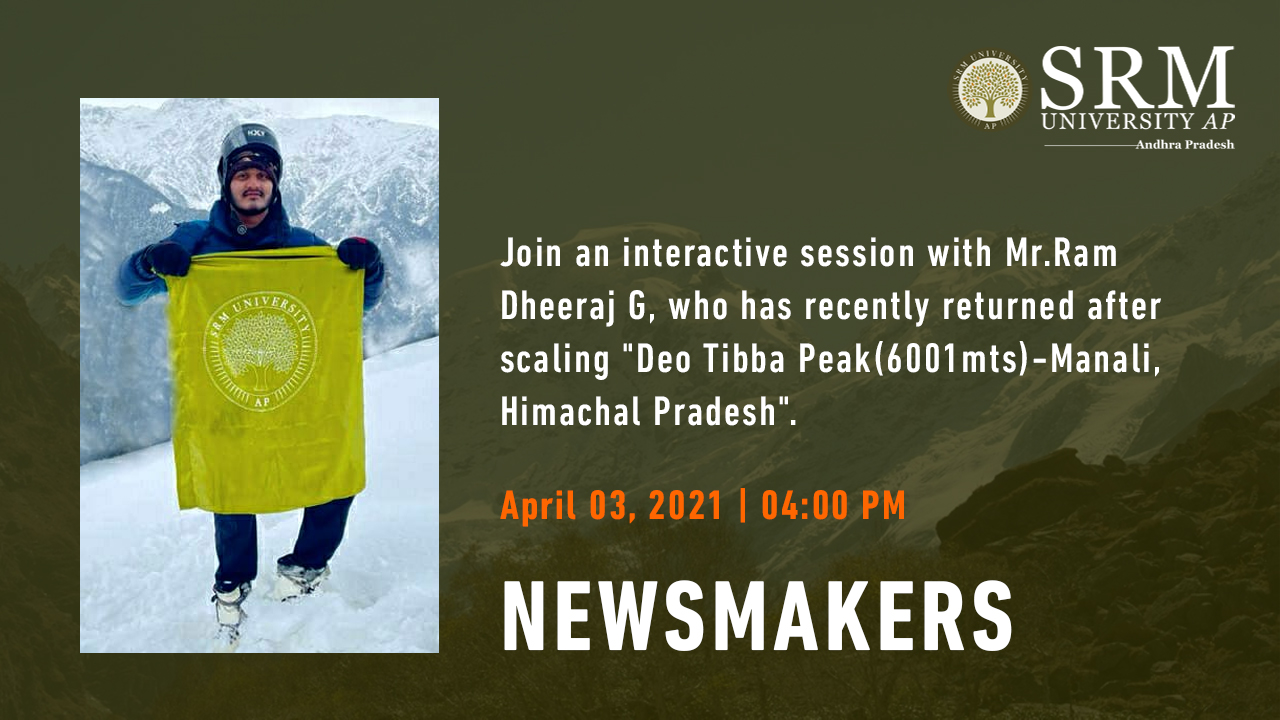 G Ram Dheeraj, 2nd year, Civil Engineering, SRM University-AP, Andhra Pradesh voyaged to the summit of “Shetidhar Peak(5358mts)” and “Friendship Peak (5287mts)” prior to his recent successful trek to the “Deo Tibba Peak (6001mts), Manali, Himachal Pradesh”. DeoTibba is the second highest peak of the PirPanjal Mountains. Basking in the meadows, and glaciers, Dheeraj reached the mountain peak – an exceptional snow dome with a magnificent view.
G Ram Dheeraj, 2nd year, Civil Engineering, SRM University-AP, Andhra Pradesh voyaged to the summit of “Shetidhar Peak(5358mts)” and “Friendship Peak (5287mts)” prior to his recent successful trek to the “Deo Tibba Peak (6001mts), Manali, Himachal Pradesh”. DeoTibba is the second highest peak of the PirPanjal Mountains. Basking in the meadows, and glaciers, Dheeraj reached the mountain peak – an exceptional snow dome with a magnificent view.
A trek enthusiast, Dheeraj fancied adventure, mountaineering, seeing places, and embracing the serenity of nature. Bending barriers, he climbed the peak only to marvel at the picturesque view. He rejoiced being at a place traversed by a few. On April 3, 2021, at 4 PM, Department of Student Affairs, SRM University-AP invited Dheeraj to recount the thrilling tales of his expeditions. In the interactive session – “Newsmakers”, he will also share insights on his fitness regime, along with giving the audience a glimpse of his future trekking plans.
- Published in Events, Students Affairs Events
Undergrad CSE student bags envious placement offer with a CTC of 20 Lakh LPA
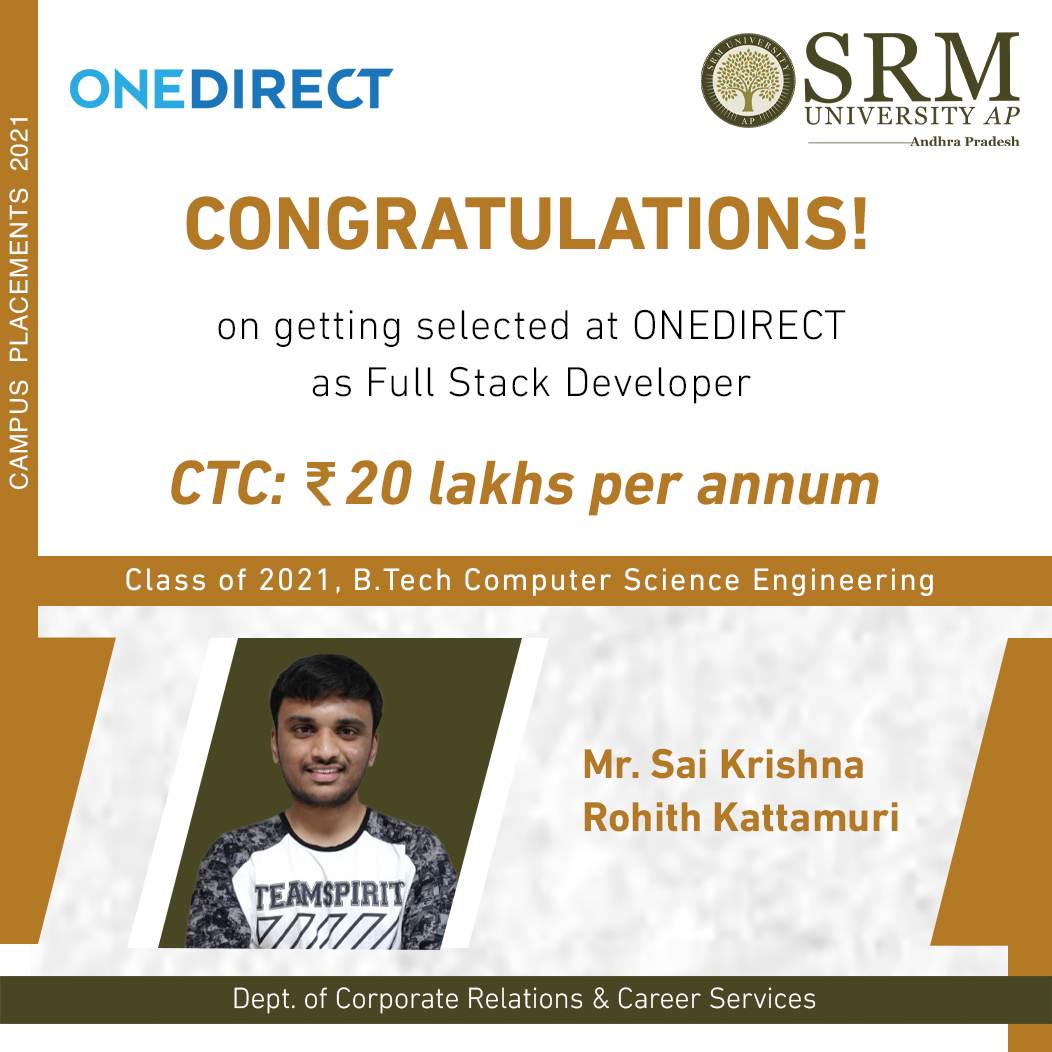 Another proud moment for SRM University-AP when Kattamuri Sai Krishna Rohith bagged an envious job offer from ODCEM Technologies Pvt. Ltd. (OneDirect) with a CTC of 20 Lakhs per annum. He is pursuing his B. Tech final year in the Department of Computer Science and Engineering.
Another proud moment for SRM University-AP when Kattamuri Sai Krishna Rohith bagged an envious job offer from ODCEM Technologies Pvt. Ltd. (OneDirect) with a CTC of 20 Lakhs per annum. He is pursuing his B. Tech final year in the Department of Computer Science and Engineering.
Mr Rohith will be joining the company as an intern for six months with monthly compensation of Rs. 20,000. After six months of internship, he will be offered the permanent employee as a Full Stack Developer with a CTC of Rs. 20,00,000 per annum.
Mr Rohith went through rigorous placement training programmes conducted by the Department of Corporate Relations and Career Services to secure the job offer. The job hiring process for this role was conducted in four stages. After preliminary selection, Mr Rohith had to prove his ability in coding, aptitude and other technical domains. The Director of Engineering himself took the final call before offering him a position in the company to see if Rohith is a proper fit for their company.
Rohith expressed his gratitude towards the CR & CS department of SRM University-AP, saying that the training sessions strengthened his core skills and abilities. He was also taught to face interviews and critical questions. Mr Rohith said, “Placement is an arduous process. I was offered another position in other company before, but I was not happy with that offer. I had faith in my abilities, so I continued searching for better opportunities and improve my skill set to secure the Super Dream offer. Keeping nerves in control, not panicking during interviews, excellent communication skills are some essential qualities that everyone should master to get good jobs. I am thankful to the CR & CS department for all their support and customised, personal, need-based assistance, which helped me a lot to prepare for the interviews,” said Mr Rohith.
After five months of determination, Mr Rohith finally secured the job that he was looking for. “The University has provided us with numerous opportunities with a flexible curriculum and Global standards. In addition to all the training, my mentors encouraged me to participate in Hackathons, apply for research internships, and attend conferences. Thanks to the extraordinary faculty that we have, the regular classes were of great help in enhancing my technical knowledge,” asserted Mr Rohith. Mr Rohith was a proud track-winner of Microsoft and EthDenver hackathons and a research Intern at Nanyang Technological University (NTU) Singapore.
He has shared his mantra to success with his fellows. Mr Rohith believes that instead of panicking or comparing with others, one should focus on becoming a better version of oneself, and the success will find him.
- Published in CR&CS, CR&CS NEWS, CSE NEWS, News
“GETTING GOAL DIRECTED”-Captivating session by Aayushi Sharma
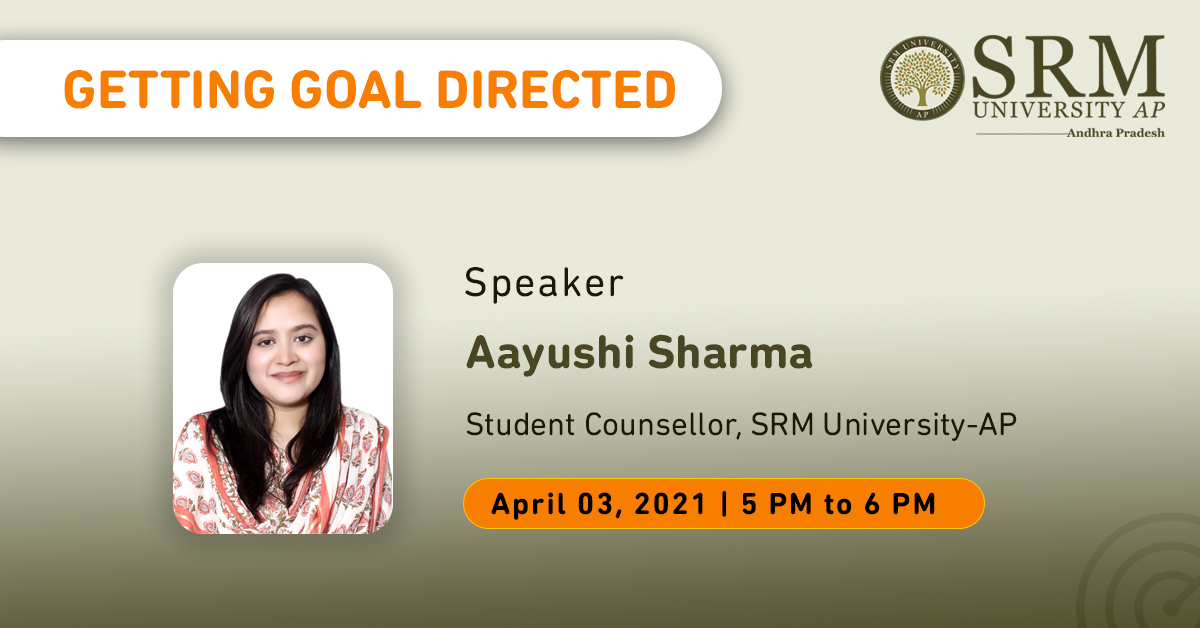 A worthy life is full of admirable goals with a fool-proof plan to achieve those. Be it completing the syllabus, getting a good job, living a peaceful life or retiring with enough money to live; all can be achieved with good planning only. In his celebrated book “Thinking Fast and Slow”, the noble laureate Daniel Kahneman opined, “Intelligence is not only the ability to reason; it is also the ability to find relevant material in memory and to deploy attention when needed.”
A worthy life is full of admirable goals with a fool-proof plan to achieve those. Be it completing the syllabus, getting a good job, living a peaceful life or retiring with enough money to live; all can be achieved with good planning only. In his celebrated book “Thinking Fast and Slow”, the noble laureate Daniel Kahneman opined, “Intelligence is not only the ability to reason; it is also the ability to find relevant material in memory and to deploy attention when needed.”
Therefore, it need not be debated that only planning is not enough. You will need proper ways to execute it. This is where Aayushi Sharma comes into the picture. Ms Sharma is your Student counsellor and the appropriate person who can enlighten you on how to plan and turn those plans into actions. Join the captivating session with Ms Aayushi Sharma on April 03, 2021, at 5 pm to know more.
- Published in Departmental Events, Events, Students Affairs Events


